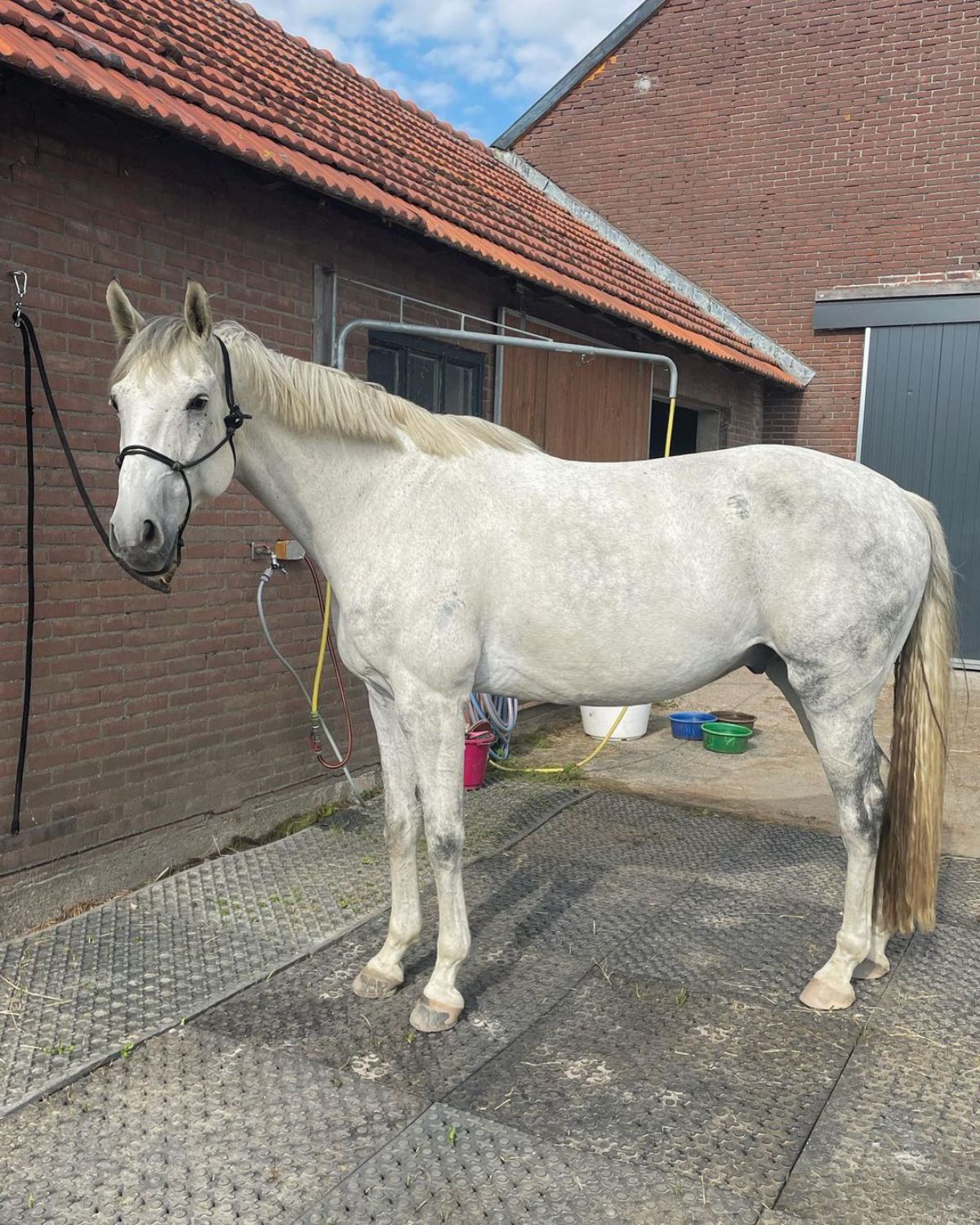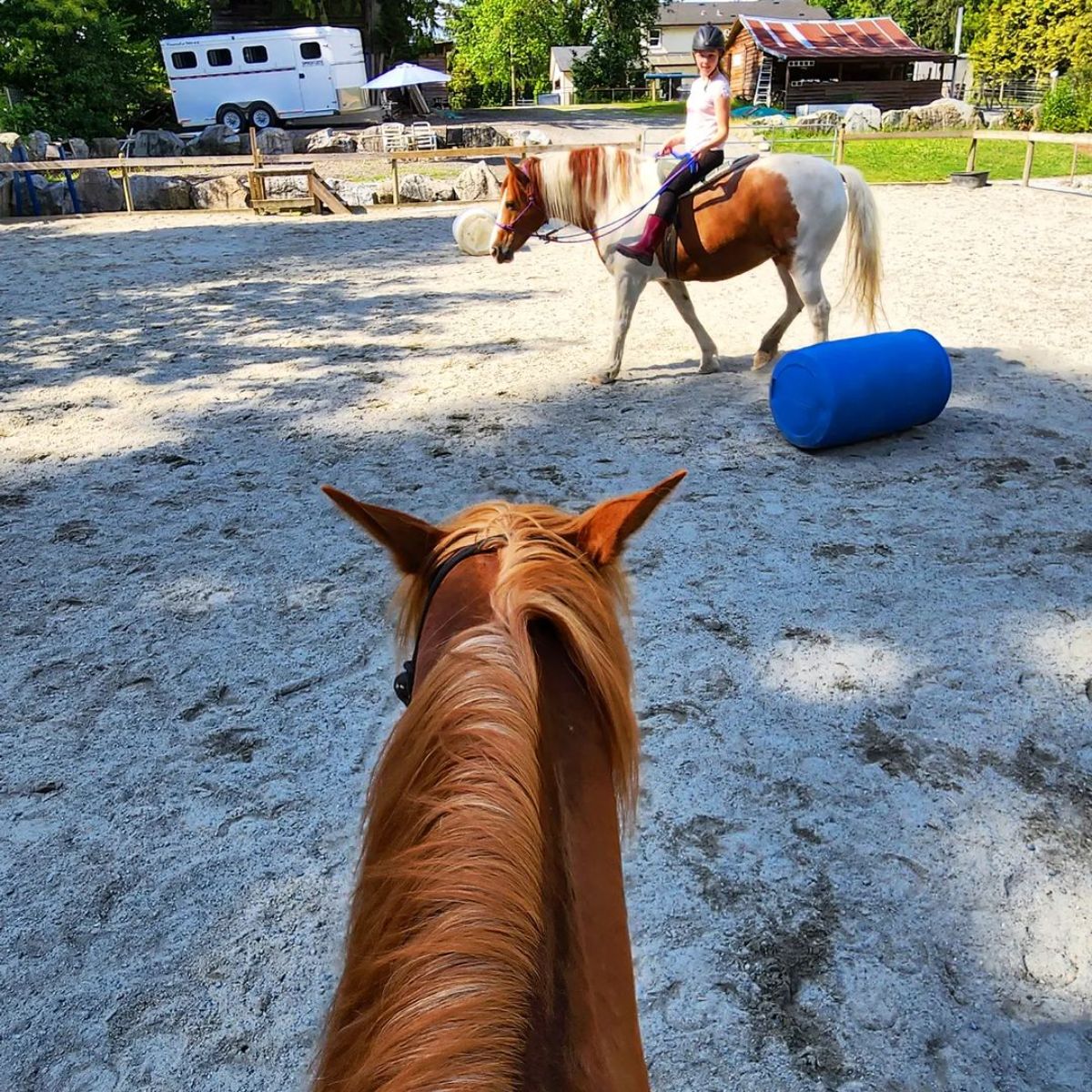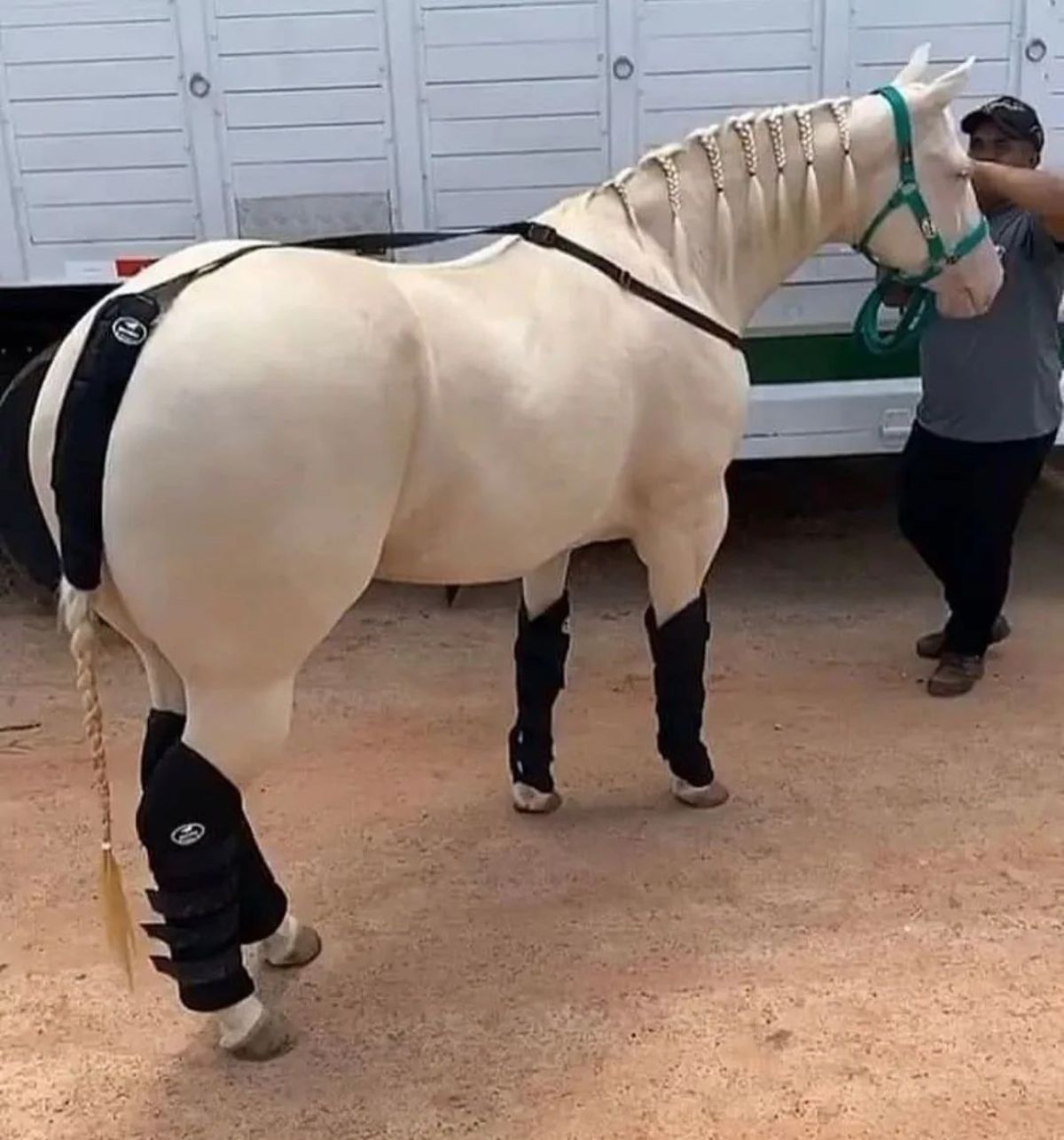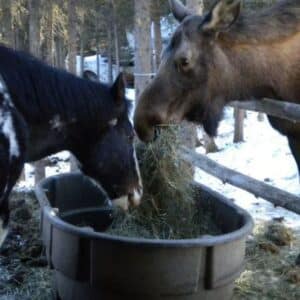Like humans, horses enjoy a tasty treat now and then and will gladly eat whatever you give them. Due to this fondness for sweet substances, most people use sugar cubes in equine training since they’re convenient to carry around and provide an appropriate incentive for good behavior.

However, they might induce health problems for insulin-sensitive horses when given too frequently. Keep reading to learn why horses love to eat sugar cubes.
Jump to:
1. Bonding

Giving your horse a tasty snack brings joy to both of you. It’s a natural reaction from the desire to cheer up someone you care about.
It’s a great way to bond and boost positive feelings toward one another. Observing their face brighten up as they munch the cube is also satisfying.
There’s no harm in giving in to this desire, so long as you don’t exaggerate. That’s because when a horse learns to anticipate treats, it may develop undesirable habits like mouthing that are tough to break.
2. It’s Sweet

Sugar cubes appeal to horses as a treat for the same reason sugar does to humans. They find its taste appetizing. Nevertheless, it isn’t a standard or an essential component of a horse’s nutrition, and excessive amounts can be detrimental.
Three to four sugar cubes per day is an acceptable limit for horses. That’s not high enough to raise their blood sugars. A single sugar cube has about four grams of sugar (one teaspoon). Taking special precautions if your horse suffers from any sugar-related conditions is advisable.
Horses suffering from insulin resistance tend to secrete extra insulin to flush glucose from their systems. Thus, while blood glucose levels are normal, blood insulin levels are typically high. Laminitis is more likely to occur when blood insulin levels are consistently high.
Sugar might lead to a spike in volatile lipids production in the gastrointestinal tract, resulting in a more acidic medium and a higher likelihood of equine gastric ulcer syndrome (EGUS).
Moreover, most horses today don’t perform strenuous tasks. Consequently, they don’t require particularly sugar-rich diets because of the following:
- Gaining weight
- Perform poorly
3. It’s Relaxing

Some problematic horses won’t let you tie a bridle on their head. You may reward them with sugar cubes whenever they permit you. Doing so consistently will help your horse associate the bridle with pleasant experiences rather than negative ones.
Furthermore, most horses don’t like anyone messing with their ears. A sugar cube might make it easier for you to handle your horse’s ears, whether tying a bridle or clipping the hair in their ears.
4. It Offers Quick Energy

Sugar cubes may give your horse some fast energy. The fact that sugar is a useful carbohydrate renders digestion and conversion into energy rather quick. The energy surge supports a horse’s bursting through the start line during competition.
Nevertheless, that energy doesn’t last for long, and once it depletes, the horse will likely suffer from exhaustion and fall.
Whereas there isn’t any exact data on how long sugar’s effects last in horses, size and genetics make every horse unique. Whatever the case, you shouldn’t rely on sugar as a constant energy source.
5. It’s a Distraction

It’s normal for horses to struggle with behavioral issues such as boredom and anxiety. That’s particularly true when they remain on stall rest for a long time. They will likely start playing with their water buckets or retreat into a corner to protest their boredom.
Furthermore, horses are social herd animals, so their sense of security and mental health requires them to live in a herd, even if it’s only two. A sugar cube is a great way to keep them busy and prevent them from focusing on their situation.
6. It’s a Tradition

The practice of feeding horses with sugar cubes passes down from one generation of equine enthusiasts to another. It’s a universal expression of love and admiration for horses that has found its way into equestrian traditions across the globe.
Sugar cubes are horse owners’ favorite because they’re convenient, they don’t cost much, and it’s possible to keep them in your pocket without worrying about them crushing. A packet of sugar cubes will last longer than that of carrots and won’t go bad if you store them properly.
Furthermore, when offered a choice of sweet treats, most horses prefer to eat sugar cubes. However, there are a few choosy ones who will not consume them.
Some owners are also against offering their horses any treats at all. That’s a personal choice, but you must consider your horse’s temperament and any special dietary requirements.
There’s nothing wrong with stocking up on sugar cubes to offer your horse as a treat, but better options could provide greater satisfaction.
The alternatives don’t have high sugar content, can be fed to insulin-resistant horses without risk, and contain ingredients you and your horse will enjoy.
7. Reward for Training or an Outstanding Performance

When training a horse to execute a move, it’s necessary to direct them through the move and provide cues. Praising your horse aloud and patting their back for a job well done might be all you need to encourage them to join the dots.
However, incorporating rewards such as sugar cubes reinforces the message that the action was successful, and further practice leads to more treats. You may also reward such by coming to you when you call them or obeying your commands.
Swapping between praising with and without a reward would be best to lower your horse’s expectations.
8. It’s Safe

Just like people, horses have dietary and textural tastes. A treat’s shape might influence your horse’s reaction toward it.
Most horses favor rounded treats because they’re easy to move in the mouth, while some will eat treats of any shape. Sugar cubes are small and dissolve quickly, so there is no need to worry about choking.
Furthermore, fruit and vegetable treats tend to be messy. Most individuals purchase dry treats such as sugar cubes for their horses because they don’t require any specific storage conditions.
9. It Improves Mood

Horses, like people, are subject to a wide range of emotional fluctuations. For instance, your horse is likely to get uneasy if you subject them to a busy travel timetable, even if they’re used to being transported. That’s because such arrangements disrupt their routine.
When they’re moody, horses tend to move their ears back. Offering them sugar cubes might have a calming effect on them.
However, it would help if you exercised caution because an angry horse might decide to bite at their anger source. That’s not the usual nibble or nip they give their young ones but a deep, painful bite.
You might also use sugar cubes to disrupt the pattern of negative handling the horse may have experienced. The horse gets the impression that you have much to offer them than just labor. The treat’s purpose is to improve the atmosphere around them.
10. Environmental Factors

In certain circumstances, they may start eating sugar cubes because of their surroundings. That includes factors such as a lack of other food choices or exposure to sugary foods.
If you always keep sugary treats where your horse can reach them, they’ll acquire a preference for sugar cubes. Be sure to keep the sugar cubes away from your horse’s reach, especially if they have had ulcers in the past.
11. Curiosity

Horses are naturally curious animals, and they love to explore new things. While some horses might be hesitant to try something new, most will happily sample a sugar cube if given the opportunity.
Horse Courses by Elaine Heney
- Listening to the Horse - The Documentary by Elaine Heney & Grey Pony Films
- Shoulder In & Out Training for better balance, bend & topline development with your horse
- Over 110+ Polework Exercises & Challenges to Download
- Dancing at Liberty & Creating Connection with Your Horse (11 lessons) - Grey Pony Films
They get a sense of satisfaction from eating something crispy that melts away in their mouth.
Final Thoughts
Sugar cubes contain sugar in them, meaning they lack minerals or nutrients. Horses love them because they have a sweet flavor. You can also use them as a training aid or watch them delightfully.
However, they risk becoming overweight or developing cavities if they consume too much sugar. Thus, you should use them sparingly.
Similarly, you shouldn’t give sugar to a horse with a metabolic condition. You should consult your veterinarian if your horse reacts negatively to sugar cubes. Ultimately, your horse will likely be comfortable with whatever treat you determine is best for them.







Leave a Reply